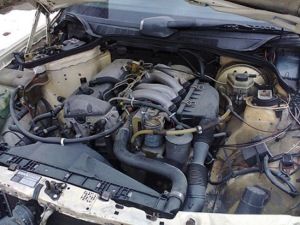News
Mayor seeks ban on diesel cars in Copenhagen after 2019
This article is more than 8 years old.
As part of a wider proposal to combat air pollution in the city, Frank Jensen wants to cut the number of diesel cars

If the mayor has his way, it will still be okay to drive it if you bought it before 2019 (photo: Didolevski)
Research has shown that every year around 80 Copenhageners die prematurely as a result of pollution and around 20 of these deaths can be put down to breathing in emissions from traffic.
As part of his campaign for the upcoming local elections, Copenhagen Mayor Frank Jensen has put forward a proposal to ban new diesel cars from the city’s environmental zones from 1 January 2019, reports Politiken.
READ ALSO: Copenhagen looks to ban diesel vehicles in the city
However, owners of cars bought before that date – many of which pollute far more than new cars – will be allowed to carry on polluting.
Good, but not good enough
Steffan Loft, an air pollution researcher at Copenhagen’s institute for public health, calls the initiative an “important signal”, but was critical of the decision to allow the older, more polluting cars to carry on while banning newer, more environmentally-friendly ones.
“The proposal could have done more to restrict diesel-engined delivery vehicles. For example, the restrictions could have been introduced earlier than 2019 and the limits chosen could have been stricter. As it is, there are no restrictions at all on diesel-engined cars except those on new cars bought after 2019.”
The art of the possible
But as far as Jensen is concerned, it’s all about pragmatism.
“There’s bound to be a social backlash if you take action against people who’ve bought a diesel car over the last couple of years to drive to work in,” the mayor said.
“However, the proposal will have an effect, because there will not be any new diesel cars after 2019 and we will also be able to reach those who are going to make the choice between a diesel car and a less polluting petrol-engined car.”
Reducing maritime emissions
As well as cars, the initiative also wants to restrict the number of wood-burning stoves in people’s homes and accelerate the move from diesel buses to electric buses.
Jensen also wants to see the many cruise ships that dock in Copenhagen use electricity instead of diesel when they need to keep their heating and power systems running.










































